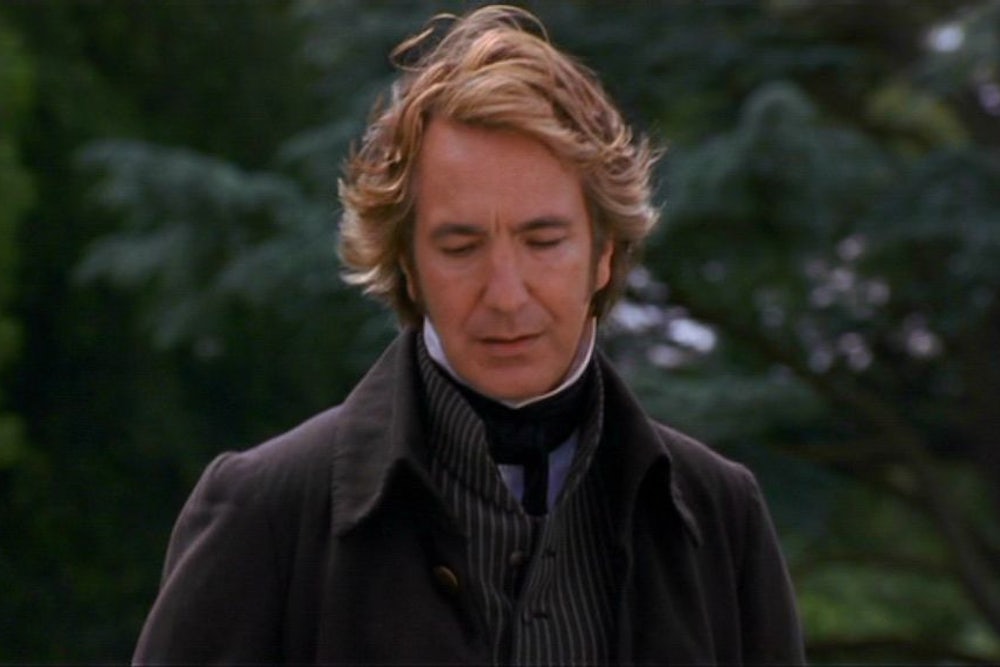Rickman’s ability to channel complete and utter disdain—what made his roles as Hans Gruber and Severus Snape so memorable—will probably ultimately be thing he is most remembered for. It was a singular gift that helped define two of the most enduring franchises of the past three decades, Die Hard and Harry Potter. Rickman was so complete a villain when he had to be—he gave the impression of being single-minded and opaque at the same time; we knew who he held in contempt, but never quite why—it’s tempting to think of him as a classic character actor, someone who spent a career perfecting one particular kind of role.
But Rickman’s greatest gift was for subtlety—for communicating a character’s entire, strange humanness in the smallest gestures. Any movie he was in was worth watching to observe the small tics and turns he would bring to a role—anyone who has seen the dreadful, otherwise unforgivable CBGB can testify to that. To my mind, Rickman’s two greatest performances were ones that have been overshadowed by Potter over the past two decades: as a ghost who returns to have an affair with his grief-stricken former lover in Truly, Madly, Deeply and as the older, phenomenally decent Colonel Brandon in Sense & Sensibility. Both of these films showcase Rickman’s greatest strength as an actor: his gift for irony that was not detached or winking, but world-weary—what the Guardian’s Michael Billington called his “ironic melancholy.”
